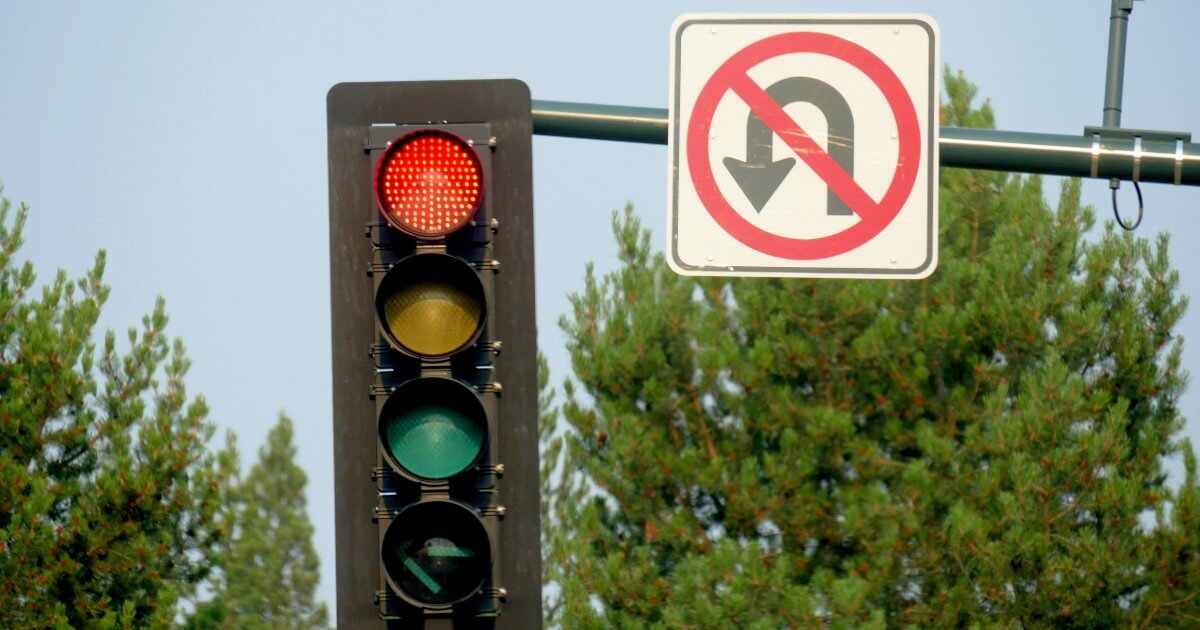U-turns are a convenient way to quickly turn a vehicle around. However, this maneuver can also be extremely dangerous when drivers ignore traffic laws or proper safety measures.
Determining fault for any traffic accident is rarely straightforward, but U-turn crashes are unique since they are not always legal. Crash scene investigators will need to first determine what happened before assigning fault to anyone. There are multiple other factors, which we discuss below, that could also impact liability in a U-turn crash.
If you were injured by a driver making a U-turn, you may benefit from having an attorney represent your case. At High Stakes Injury Law, you can rest assured that no client is just a number. We are ready to listen carefully to your concerns, and we always fight for maximum compensation. Our experienced Las Vegas auto accident attorneys are also prepared to work hard to protect your rights. Learn more in the free consultation we offer.
Who May Be Liable for Causing a U-Turn Crash?
If a crash happens during a U-turn, the driver making that turn is usually to blame. Drivers have a legal duty to obey Nevada state laws and to take steps to prevent others from harm. When a U-turn crash happens, it is often because a driver failed to turn safely or violated the law.
For instance, U-turning drivers are required to check for oncoming traffic or obey the law if a U-turn is prohibited.
Could Another Driver Be At-Fault for a U-Turn Crash?
Absolutely. Sometimes the driver turning may only be partially at fault for a U-turn crash. For instance, a red-light-runner who collided with the driver midway through a U-turn could share partial liability. In rare cases, depending on other contributing factors, the oncoming driver could be found completely at fault.
Does Negligence Per Se Apply to a U-Turn Crash?
Maybe, but it depends on the circumstances leading up to the crash. Negligence per se may apply if the negligent party (defendant) violated a state law while making a U-turn. However, there are other elements that must also exist, including:
- A state law or statute was created and exists to protect a specific class of individuals
- The injured party (plaintiff) is a member of the class protected by that law
- The crash happened because the defendant violated that law or statute
- The plaintiff sustained injuries as a direct result of the defendant violating that state law
If the defendant violated the law while making a U-turn that resulted in a crash, negligence per se may apply. Car crash claims are often complicated, however. That is why we strongly recommend seeking help from a qualified attorney.
Are U-Turns Legal in Nevada?
Under Nevada Revised Statute (NRS) 484B.403, making a U-Turn is legal on any road if the driver can do so safely. A U-turn happens when a driver turns his or her vehicle in the opposite direction.
When Making a U-Turn is Illegal
While U-turns may be legally allowed in many areas, there are times when this kind of turn is illegal. According to NRS 484B.227 and 484B.407, it is illegal to make a U-turn:
- If there are traffic signals or road signage prohibiting U-turns
- In any business district or school zone unless there is an intersection or divided highway; even then, the driver must first make sure there is an adequate opening or crossing place
- Wherever the Department of Transportation or local authorities prohibit making U-turns in their respective jurisdictions
- When a driver approaches the crest of a hill with 500 feet or less visibility
What Are the Penalties for Making an Illegal U-Turn in Nevada?
Making an illegal U-turn is extremely dangerous, but it is treated as a minor offense in Nevada. That said, if you are issued a ticket, the fine is $230. Violators could also receive three demerit points on their driver’s license.
Drivers who get a ticket and try to ignore it may be in for a big surprise. Nevada judges may opt to issue a warrant to arrest these individuals and assess additional fines.
Double penalties will be assessed against drivers who make an illegal U-turn in either a work zone or pedestrian safety zone.
What Factors Could Cause a U-Turn to Result in a Crash?
Even when it is legal to make a U-turn, there are times it could be extremely dangerous to do so. Drivers who ignore traffic safety violate their duty of care and put others at risk of injury.
When Making a U-Turn is Dangerous
Trying to do a U-turn from the wrong lane or in a tight area is both unsafe and illegal. Additional ways doing a U-turn could create a hazardous condition and lead to a crash, include:
- Not allowing a big enough gap from oncoming traffic when turning
- Suddenly slowing down or not keeping up with the flow of traffic
- Misjudging the speed of oncoming traffic
- Failing to yield to vehicles with the right of way
- Blocking oncoming traffic while making a U-turn
Contact Our Firm to Discuss Your Legal Options After a Crash
Improperly taken U-turns can quickly result in an unexpected crash. Victims in these collisions may suffer severe injuries and face a lengthy recovery.
If you were injured because of a negligent driver making an improper U-turn, the legal team at High Stakes Injury Law is ready to help. You may be eligible to seek significant compensation to help with your medical costs and other damages.
Our firm has recovered over $100 million for our clients. Your consultation is cost and risk-free. Since we take car crash cases on contingency, there are no fees to pay unless we win.


